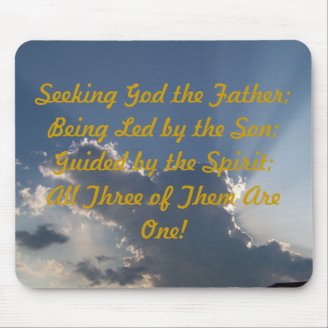The Orthodox Religion split with Rome during a prolonged exit. Going back to the initial break, it concerned who was the successor of Peter.
The early Church proclaimed the Bishop of Rome as the legitimate successor of Peter. So, there were two claimants, along with a French bishop, who all claimed the right of the papacy. The French bishop gave up his claim, but the other two each claimed to be the true successor of Peter.
This was caused by the Roman Empire fracturing. In the end of the Roman Empire there were co-emperors, one based in Rome and one in Constantinople. They had staggered terms, and each reigned as a co-emperor. When the barbarians finally had the Western Roman Empire is disarray, the Eastern Roman Empire held back troops, keeping them for its own protection, thereby allowing a collapse of part of the Western Empire. Now came the question of what did the early Church consider the Bishop of Rome? One bishop was Bishop of the City of Rome, the other was Bishop of the remaining seat of the Roman Empire. So, which Rome determined the successor of Peter? Was it the city or the country?
In hindsight, there no longer is any Roman Empire. Yet the City of Rome remains.
Of course, it came down to more that who was Pope, there was a difference of opinion on a major religious idea that Jesus is both fully God and man fully. This would be difficult for an early century person to determine, except through the teachings of his or her bishop. Hence, people followed their bishop. I believe this issue is now resolved, and the Orthodox Church no longer holds Jesus to not be fully man. (I am not an authority on the Orthodox Church, so I may be in error here.)
















 The Linear Equation and Related Equations and Inequalitieson 08/15/2024
The Linear Equation and Related Equations and Inequalitieson 08/15/2024
 Understanding Calculus: A Simplified Approach to Derivativeson 08/05/2024
Understanding Calculus: A Simplified Approach to Derivativeson 08/05/2024
 Limits: Vital Building Blocks of Calculuson 08/01/2024
Limits: Vital Building Blocks of Calculuson 08/01/2024
 Mardi Gras Collectibleson 02/02/2023
Mardi Gras Collectibleson 02/02/2023



Comments
The more we know the easier it is to get to a conclusion.
Content from Knowledgeable!
Thanks for the addition. You knowledge of sources is vast.
Keith Ward,retired Regius Professor of Divinity at Oxford, wrote a great book on this subject entitled God, Chance and Necessity. He accepted that nothing can be definitively proved, but he thought God the best option.
Regius means royal, and that professorial chair, Britain's senior professorship, is a personal appointment of the monarch.
It is not what happened after the Big Bang, as before that we cannot come to scientific terms with. As for the Big Bang, it still is conjecture, and every once in a while some scientists question whether it actually happened. But, we never will know what happened pre-event, and science cannot explain the material that was thrown out from a Big Bang, if indeed there was one. I see no alternative to creation. It is the mechanism that we can strive to understand, not something from nothing. Even particle/anitparticle pairs that fleetingly come into existence then annihilate each other come from energy then return to energy, so we take matter and energy as two parts of the same whole, but then comes the question where did energy originate? we never get something from nothing while following the laws of physics.
blackspanielgallery, Thank you for the practical information and the product line.
Chris Lintott, Brian May and Sir Patrick Moore describe, in Bang! The Complete History of the Universe, the time from the Big Bang to the first 300,000 post-Big Bang years as on the opaque side of the barrier of the Cosmic Microwave Background and the transparency event from 300,000 A.B. to now. Do you, as a physicist, think that those 300,000 years will be comprehended at some future point in a way that favors creation, science, neither or both?
Here we have tolerance. Perhaps it is because we were settled by Catholic France, and later Spain. But the tolerance is such that a Jewish synagogue closed and merged with another several miles away. There was a procession through the streets and the Torah of the closing synagogue was carried on poles. All could watch the procession pass by. It went fine. In many places this could not happen.
Some of your Irish came here to escape the intolerance. We appreciate their parades on Saint Patrick's Day.
BSG
I like the point that we must disagree with respect. I am increasingly annoyed at how here in UK we " walk on egg shells " around 2 certain faiths and yet Catholicism is seen as an acceptable " whipping boy " . This of course goes back hundreds of years to our History and also the Irish immigration into England .
There are some beautiful statues here.
Frank, this is slightly abbreviated, for other things had to be considered. Such things include religions that dd not split with Rome, such as eastern religions. Indeed, there was Mohammed and his followers. Religion is much too complex for one article, but knowledge is cumulative, and all we learn can lead us. One source of fine religious articles is your contributions here on Wizzley.
Frank, I agree that we cannot prove some things, so faith is important. We can get closer to understanding if we do understand, but it alone is not definitive. My belief is that changes in the next life.
Thanks for the comments.